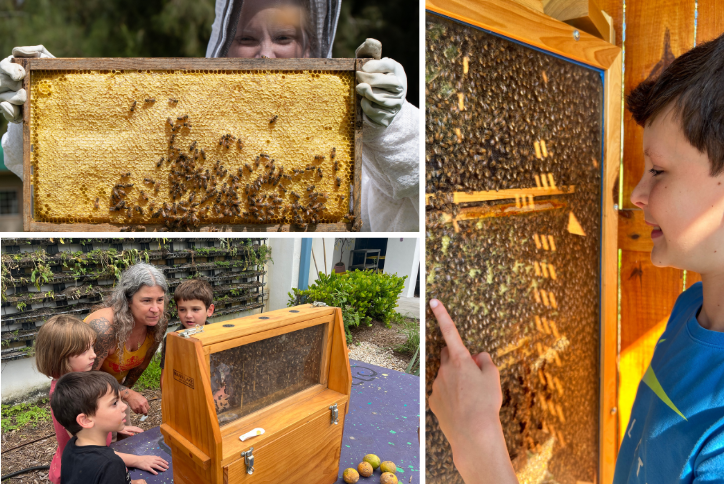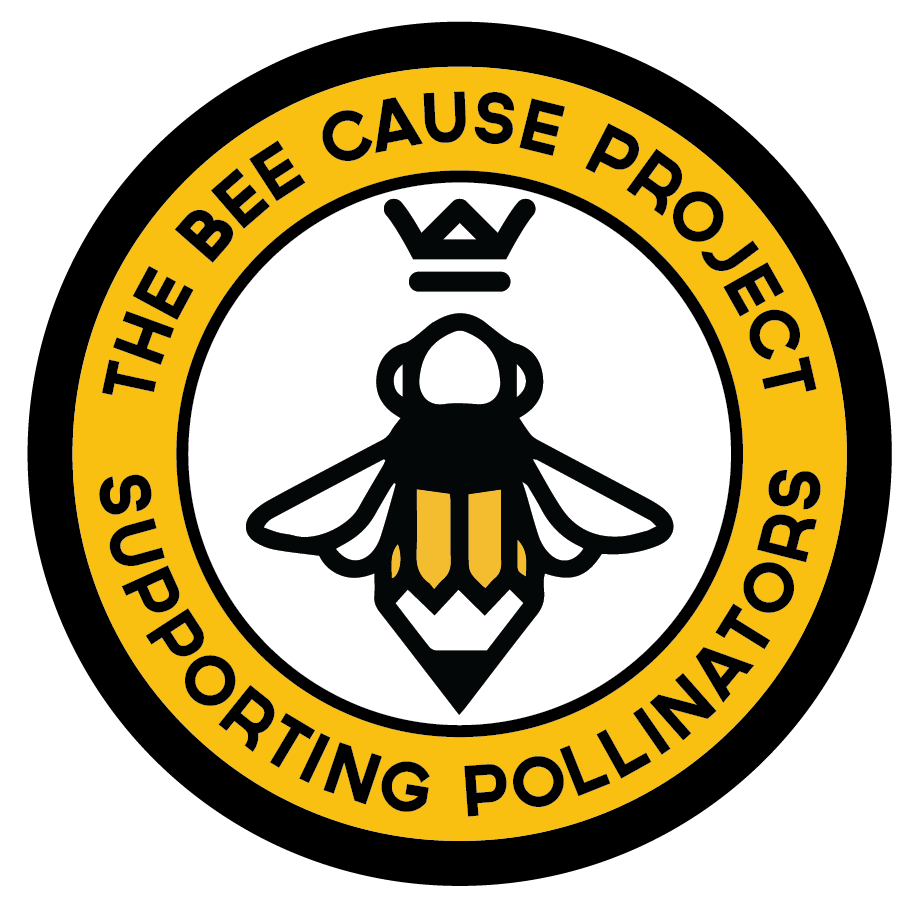Buzzing With Purpose: The Case for Pollinator Education

As the school year begins, there’s a natural sense of new beginnings – backpacks filled with crisp notebooks, sharpened pencils, and the buzz of excitement in the air. Yet education doesn’t only happen within the walls of a classroom. Some of the most powerful lessons happen outside, where nature itself serves as the teacher.
Among the most important lessons we can pass on to the next generation is the role of pollinators. Bees, butterflies, moths, hummingbirds, and even certain beetles quietly sustain life on our planet every single day. By connecting students to these incredible creatures, we not only nurture curiosity but also plant the seeds of stewardship that will carry far into the future.
Pollinators Feed the World
Pollinators are not a luxury – they are the foundation of our food systems. Every child’s lunchbox tells this story. The apple slices tucked inside, the almonds in a snack bag, the blueberries sprinkled over morning cereal – all of these foods exist because of pollinators.
Scientists estimate that more than three-quarters of flowering plants and about one-third of our crops rely on them. Without pollinators, our diets would be far less colorful, less nutritious, and much more limited. Meals would lack variety, and food would become scarcer and more expensive.
When children begin to understand this connection, they see that the buzzing bee in the schoolyard or the butterfly fluttering past the playground isn’t just a passing moment of beauty – it’s a lifeline for their own health and nourishment.
A Population Under Threat
But this lifeline is under serious threat. Pollinator populations have been declining for decades due to habitat loss, pesticide use, disease, and climate change. Species that once thrived in abundance are now struggling to survive.
This decline doesn’t exist in isolation; it has ripple effects across entire ecosystems. When pollinators suffer, plants fail to reproduce, animals lose their food sources, and humans face real consequences for the food we depend on daily.
For students learning about science and the environment, these aren’t abstract ideas. They are urgent, tangible realities that will shape the world they inherit. Helping young people understand this crisis isn’t just about knowledge – it’s about preparing them to be problem-solvers and advocates for a sustainable future.
The Power of Education
This is where pollinator education becomes transformational. When students get the chance to see a beehive up close, plant a pollinator-friendly garden, or dive into lessons about how ecosystems work, something shifts. They move beyond memorizing facts and into experiencing wonder.
“I can’t wait to do a Queen Bee search! That’s going to be fun. Maybe she will get used to me and come out when I come visit,” shared Maritza, a 3rd grader at the Boys & Girls Club of Martin County. Her words capture the curiosity and excitement that blossom when children learn directly from pollinators.
A simple lesson on the life cycle of a bee can spark deeper thinking about biology, agriculture, and even global food security. Research from the Children & Nature Network shows that time spent learning outdoors not only boosts academic performance but also improves focus, reduces stress, and nurtures creativity.
When pollinator education takes root in schools, it’s not just science enrichment – it’s a whole-child approach to learning that strengthens minds, bodies, and communities.
Growing the Next Generation of Stewards
The beauty of pollinator education is that it doesn’t end with the student. While a first grader learning about pollinators for the first time may ask to plant flowers that will attract butterflies, an adolescent may advocate for discontinuing the use of harmful chemicals in the yard, as they’ve discovered that this may be environmentally disruptive.Some will even grow up to pursue careers in agriculture, conservation, or science, carrying forward the spark that started in their school years.
“Well, you gotta face your fears,” said Dakota, a 3rd grader from Meadow Montessori School, after bravely suiting up to visit the hives despite being terrified of bees. That kind of courage, sparked by education, is exactly the kind of character we hope to nurture.
“At the beginning, I was kinda scared…but learning about the bees and their importance to our ecosystem helped me overcome that fear. I loved taking care of our bees and checking in on them during our nature walks,” said Makay, a 6th grader at Lakota Waldorf School. Stories like hers remind us that pollinator education builds resilience and empathy, not just knowledge.
Education has a ripple effect that can change households, neighborhoods, and eventually entire communities. When we invest in this kind of hands-on learning, we’re not just teaching kids facts about bees. We’re equipping them with the understanding, empathy, and leadership skills to take action.
Why It Matters to All of Us
At The Bee Cause Project, we believe every child deserves the chance to discover the vital role pollinators play in their lives. Because once they understand that a bee buzzing outside their classroom window is connected to the food on their plate, their world opens up in new ways.
Educators see this transformation too. “I love the Bee Cause curriculum and the members find it to be so engaging! The photos and illustrations in particular are beautiful and compelling, and the concepts are clear for our kids after we complete the activities,” shared Jodie Knofsky from the Boys & Girls Club of Martin County.
And for some teachers, The Bee Cause Grant Program becomes a true lifeline. “I stepped into this role with no notes, records, or prior information about the hive or program. It was overwhelming at first, but I reached out to The Bee Cause Project, and their team was incredibly supportive. They provided guidance, resources, and reassurance that helped me get everything back on track,” said Dee Marshall of Pleasant Hill Elementary STREAM Academy.
Pollinator education is not only about safeguarding bees and butterflies – it’s about safeguarding the health of people, communities, and the planet itself. And it all begins with that spark of curiosity that can turn a lesson into a lifelong mission.
Let’s bee the change – together. Learn about applying for a Bee Grant or donate to help us grow the next generation of environmental stewards.




